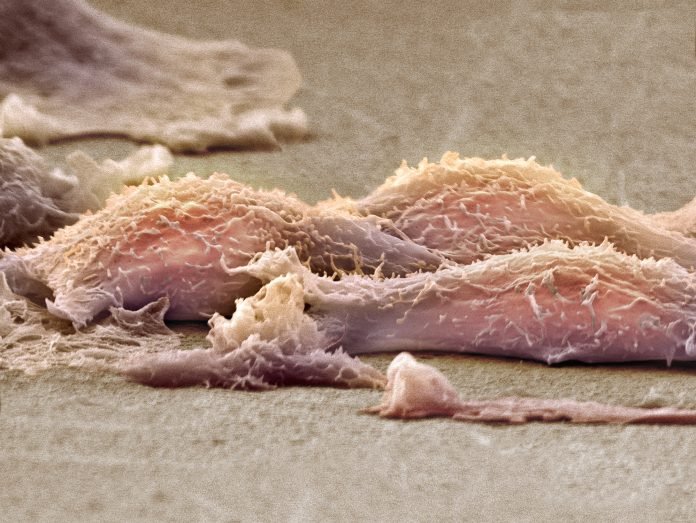
A Phase I trial led by the Baylor College of Medicine shows an autologous chimeric antigen receptor (CAR) T-cell therapy for treatment of advanced HER2-specific sarcoma was beneficial in 50% of patients in the trial.
Lower-level cytokine release syndrome was fairly common in the study, but only two individuals had dose limiting grade 3–4 cytokine release syndrome.
“Metastatic and progressive sarcomas portend a poor prognosis,” explain co-lead author Meenakshi Hegde, associate professor at Baylor and pediatric oncologist at the Texas Children’s Cancer Center, and colleagues in the paper describing the work published in Nature Cancer.
“Despite their molecular heterogeneity, there is a paucity of ‘tumor-restricted’ antigens for immunotherapy. Human epidermal growth factor receptor 2 (HER2/ERBB2) is a tumor-associated antigen of clinical interest; however, HER2-targeting drugs have thus far proven ineffective against tumors that overexpress HER2 without gene amplification.”
This has led to the development of CAR T-cell therapy for treatment of sarcoma, because this type of therapy is able to target low density surface antigens and so has the potential to treat tumors with even small-modest amounts of HER2 expression.
However, in the past it has been a challenge to target solid tumors with CAR T-cell therapies for a number of reasons such as poor CAR T-cell expansion and persistence, which was a problem that Hegde and colleagues experienced in an earlier trial in sarcoma patients.
“CAR T-cell therapy has been a highly successful strategy for recurrent or high-risk leukemias or lymphomas, but challenges remain in using this therapy for solid tumors,” noted Hegde, in a press statement.
In the current study, after initial sampling to create the autologous therapy, the researchers carried out lymphodepletion. This involves using chemotherapy to deplete existing T cells, which makes room for the therapeutic HER2-CAR T cells to expand when they are infused back into the patient. They also carried out multiple infusions of the CAR T-cell therapy to try and extend the duration of the antitumor effect.
Overall, 13 patients were enrolled in the trial and seven received multiple infusions. Clinical benefit was seen in 50% of treated patients, with one patient achieving a particularly good outcome and remaining cancer free five years later.
Nine patients had low-grade (1–2) and two patients had higher grade (3–4) cytokine release syndrome, with the latter two patients stopping dose escalation due to toxicity.
“We are now studying the tumors and the way we engineer the CAR T cells to better facilitate the safe delivery of higher doses, thereby enhancing antitumor activity by increasing the magnitude of CAR T cell expansion and persistence,” Hegde said.
The researchers are now recruiting for a third version of the trial, which will test CAR T-cell therapy in combination with chemotherapy and an immune checkpoint inhibitor drug.













